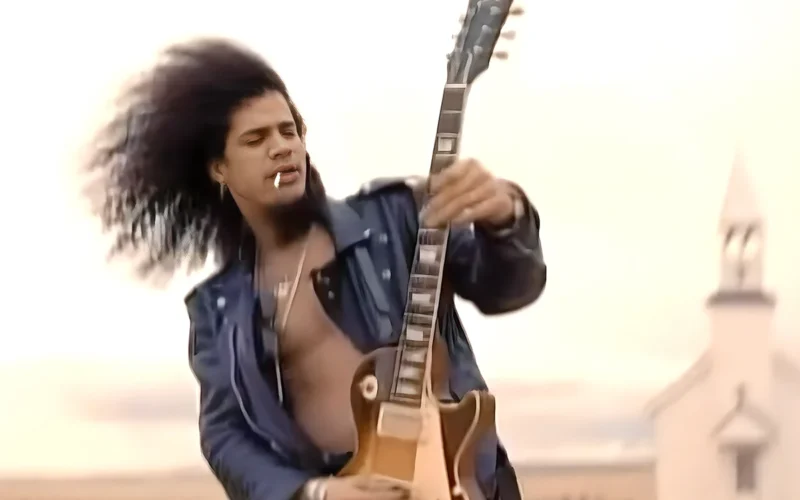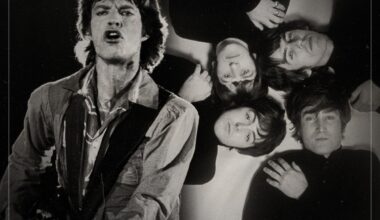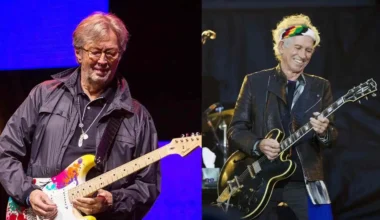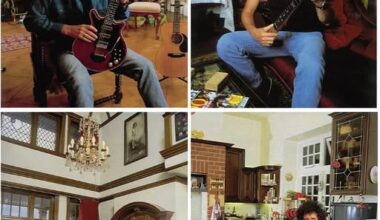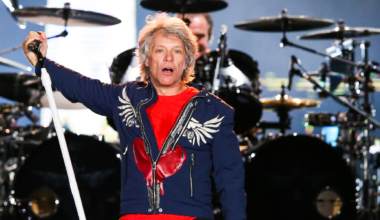For people like Slash, playing the guitar is about more than flexing your chops every time you get in front of an audience. The art behind it involves someone being able to speak through their instrument, and whether it’s the Guns N’ Roses mastermind, Jimmy Page, or Steve Vai, each one of them has carved out their own voice on guitar without having to sacrifice any of their credibility. But every guitarist normally has that one moment where it goes from being a fun hobby to a lifelong pursuit, and Slash has had multiple moments like that when he came across another guitar hero.
Even if you were to limit his time to solely being Guns N’ Roses, though, Slash would still be considered one of the finest guitarists of his generation. His music was practically a love letter to the rock and roll that he heard as a kid, and while there were obvious influences from people like Joe Perry and Eric Clapton sprinkled in there, it’s easy to pick up on the carelessness of Johnny Thunders in his stage performance or the lyrical solos that came from listening to Joe Walsh nonstop.
But whether or not Slash would admit it, all of his greatest songs stemmed from the blues before anything else. The greatest guitarists of his generation always started out in that same blues box, and even though Slash could check off jamming with BB King from his bucket list, there were plenty more avenues for him to go down rather than the standard king of all blues technique.
After all, The Yardbirds and The Rolling Stones were among the finest blues acts of their time, but it’s not like they stayed in the same lane for very long. Keith Richards knew he wanted to explore genres like country in his spare time, and while The Yardbirds started making pop crossover material with tracks like ‘For Your Love’, each guitarist had his own agenda about what they wanted their instrument to say.
Although Jimmy Page may have been cheeky calling Led Zeppelin ‘The New Yardbirds’ at first, his approach to the instrument was already far more intense than Clapton’s, always trying to put that extra bit of fury into everything. But even Page would admit that he was copying the playbook of what Jeff Beck was doing, and if Beck couldn’t get the same reaction with Truth, he would make sure he covered every base he could on albums like Blow By Blow and Wired.
And while Slash had developed a greater respect for some of the finest blues guitarists, it wasn’t until Beck that he started to really pay attention, saying, “That’s my favourite guitar player. That’s the guy I sat down to learn ‘Cause We’ve Ended As Lovers’, ‘Goodbye Pork Pie Hat’, all that stuff. That’s when I really started focusing on guitar technique, with Jeff.”
His touch is a little bit more aggressive than what Beck was doing, but Slash wasn’t about to stop at one style of playing. He could play something loud and occasionally sloppy like on ‘Paradise City’, but his adventurousness on the fretboard was descended from Beck, whether it was learning how to do flamenco-style guitar for a song or learning to use sustain to make the guitar sound like it’s crying out in pain.
Not everything that Slash played sounded like it was influenced by Beck by any stretch, but that was the point. Beck was among the finest guitarists to ever pick up the instrument, but if there was one lesson he had to impart on everyone, it was that it was pointless to try to copy someone else’s style. It’s always better to be original, and Slash knew that whatever he played should be instantly recognisable as him.
